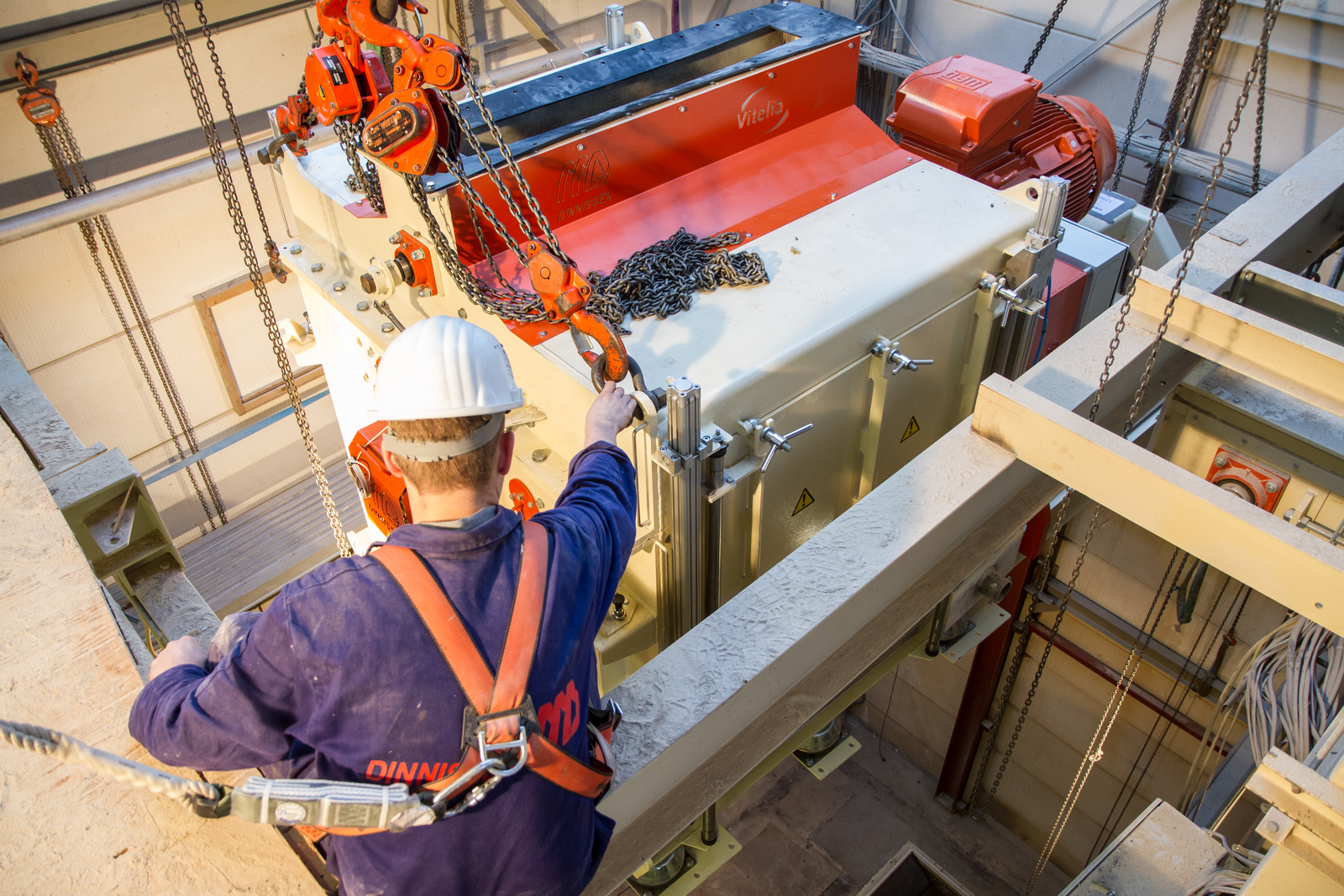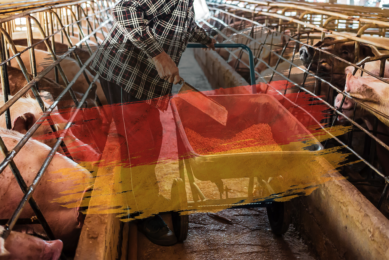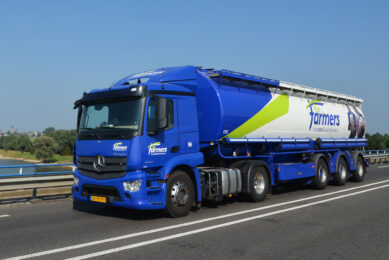Successful installation of innovative hammer mills

The Dutch feed miller Vitelia Voeders has recently increased its capacity by installing a new mixer, pressing facility and grinding installation. ?The capacity increase with these new hammer mills turned out to be even more than the 10% aimed for.
In recent years, the Dutch cooperative feed miller Vitelia has made significant investments in new and innovative developments at its feed production facilities to be able to offer the highest quality of feed for animals in each and every phase of their life cycle. These investments include a flexible Pegasus® mixer, a Magi-Con pressing facility and a Magi-Mill grinding installation. As a result, Vitelia can now produce feed that can be digested more easily in a wide variety of structures and compositions. In January this year, Vitelia invested in two innovative battles with automatic screen changers and an extra-large screen surface. The new hammer mills from Dinnissen were installed in Vitelia’s feed production facility in Oirlo. This major operation was successfully completed during the weekend in order to minimise the impact upon client delivery schedules. Approximately 50 employees were involved from Dinnissen, Vitelia and the automation expert Imtech.
Optimise quality and flexibility
“With these innovative hammer mills, Vitelia aims to increase the capacity of its feed production facility by 10% per year. This latest investment is very much in line with our stated policy of producing high-quality feed as efficiently as possible,” explains director Stefan Kuijpers. “Our ultimate goal in terms of feed quality is to provide clients with exactly the right quality of feed for animals in each and every phase of their life cycle in order to provide optimum support for their growth, performance, and (intestinal) health. That is also why we invested heavily in recent years in production technologies, logistics, and automation, enabling us to produce and supply tailor-made feed solutions efficiently and flexibly. Within the framework of our ongoing efforts to optimise quality and flexibility, we discovered that the hammer mills were the limiting factor in our production process.
In addition, we were faced with the prospect of soon having to carry out major and costly maintenance on the mills. We therefore went looking for new and innovative hammer mills that would upgrade the flexibility and capacity of our production process.
We contacted our house supplier, Dinnissen Process Technology, for assistance in that regard due to their specialised knowledge and expertise and overall reliability”.
Redesigned screen panels
“Hammer mills are especially suited for grinding soft to medium-hard products such as grains, raw ingredients containing proteins, and minerals down to particle sizes of between 3.5 mm and 150 µ. In Dinnissen’s hammer mills, freely suspended hammers rotate at high speed inside the grinding chamber. The centrifugal force produced by the rotating hammers crushes the product into smaller particles against special grinding panels on the inside of the grinding chamber, after which the processed product passes through special screening panels before leaving the hammer mill. The screen surface and perforations determine the capacity, quality and effectiveness of the screening process. In order to increase the production capacity of the hammer mills for Vitelia, Dinnissen invested in developing innovative solutions for these crucial factors. A new esign was developed for the screen panels inside the grinding chamber which increased the screening surface and therefore also the screening capacity. A new design was also developed for the grinding panels in the hammer mill, which also increased their surface area and capacity. In addition, the screen storage facility was fitted with an extra-wide chamber, making it easier to carry out maintenance and replace damaged screens whenever necessary. This in turn reduces downtime during maintenance stops. The maximum speed of the new system is 1500 revolutions per minute, which means that it has a longer usable lifetime and is more energy-efficient than its predecessors. The built-in magnets and traps for unwanted hard objects also prevent damage to the screens from the presence of iron objects or other hard materials.
In specific situations, such as for poultry feed, Dinnissen will install screen panels with perforations of 3.5 to 8 mm. We expect this to increase capacity by 20% per installed kilowatt,” explains Henri Michiels from Dinnissen.
Mechatronic screen changer
Dinnissen has designed a new and innovative screen changing system for its newest hammer mill, which offers increased speed, ease-of-use and reliability for Vitelia when switching between different ingredients and product specifications. The automatic screen changer has enough space for 4 sets of different screen panels, making it possible for the system to automatically select the appropriate screen perforation and produce the desired product with optimum structure and particle size. The mechatronic screen changer system automatically chooses and places the correct set of screen panels in Vitelia’s hammer mill. After completion of the production process, the screen changer also removes and stores the set of screens within 40 seconds. This makes it possible to change screens very quickly and greatly reduces downtime. It also reduces the risk of the wrong screen panels being used. The automatic screen changer can also be fitted with a screen detection system.
In addition to this recent tests after the installation of the hammer mill showed that the capacity is even higher than expected. Capacity is now 40 tonnes per hour with a capacity of 238 kw and a grinding perforation of 3.5 mm.
[Source: AllAboutFeed magazine Vol 22 nr 4, 2014]











